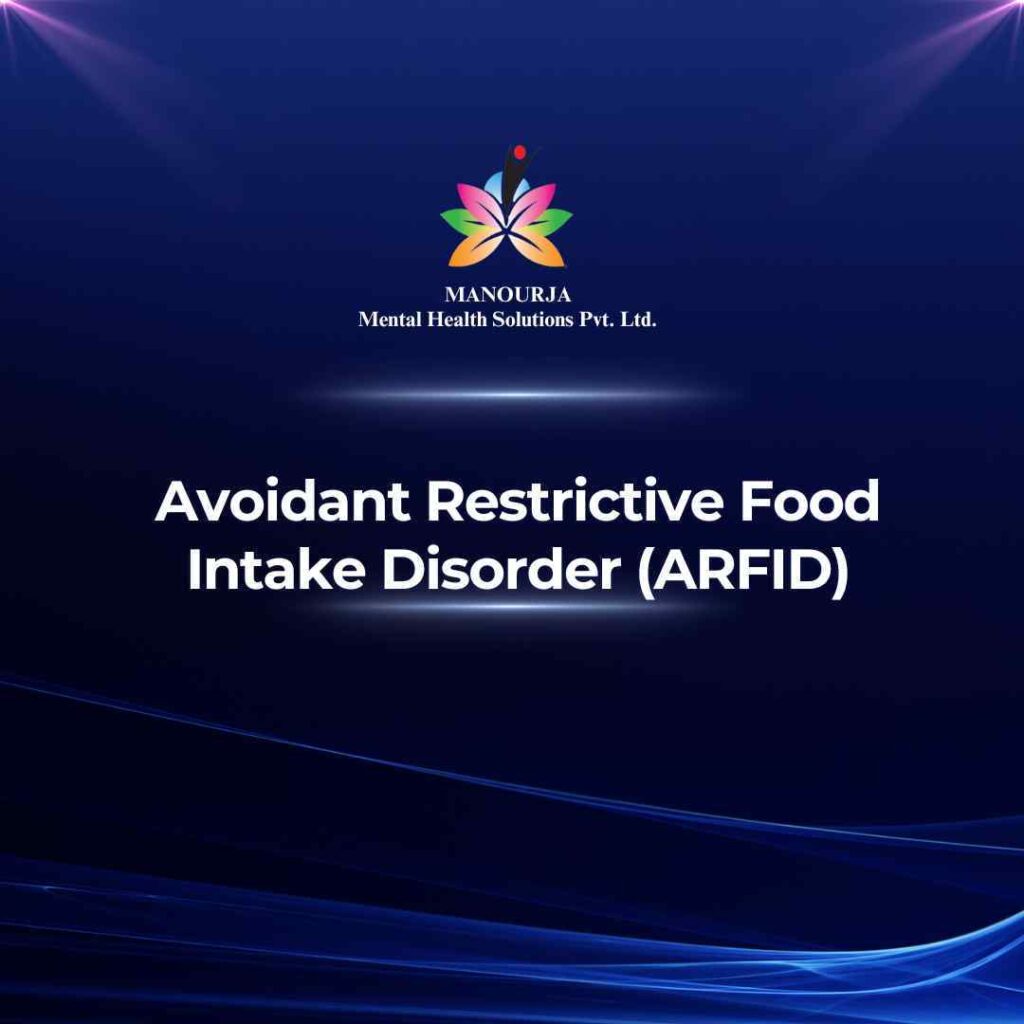Avoidant/Restrictive Food Intake Disorder (ARFID)

Avoidant/Restrictive Food Intake Disorder (ARFID) is more than just picky eating—it is a complex condition characterized by highly selective eating habits, disturbed feeding patterns or a lack of interest in eating. Unlike other eating disorders, ARFID isn’t about body image concerns. Instead, it usually stems from an individual’s negative response to the taste, texture, smell, or appearance of certain foods, or from a traumatic experience related to eating.
Symptoms of ARFID
People with ARFID can display a variety of symptoms, which might include:
- Significant Nutritional Deficiency: Due to restricted intake, individuals might not consume enough vitamins, minerals, or calories, leading to developmental problems, weight loss, and energy deficiencies.
- Weight Loss or Poor Development: In children and teenagers, ARFID can significantly impact growth and development. Adults might experience noticeable weight loss and general health decline.
- Dependency on Supplements: To meet their nutritional needs, some individuals might depend on nutritional supplements or in severe cases, require enteral feeding.
- Social Impairment: The eating disorder can also cause distress in social settings, where eating is involved, potentially leading to isolation or avoidance of social activities.
Forms of ARFID
ARFID manifests in various ways, primarily grouped into three categories:
- Sensory Sensitivity: Individuals avoid certain foods because of their sensory characteristics, such as texture, smell, or color.
- Fear of Aversive Consequences: The avoidance stems from a fear of unpleasant consequences like choking or vomiting.
- Lack of Interest in Eating: Some people with ARFID simply do not feel hungry or have a disinterest in food.
Treating ARFID
Addressing ARFID involves a comprehensive approach tailored to the unique needs of the individual:
- Nutritional Counseling: Dietitians play a crucial role, helping individuals adopt a balanced diet and addressing specific nutritional deficiencies.
- Behavioral Strategies: Exposure therapy can be effective, where individuals gradually try new foods in a controlled and supportive environment, helping to mitigate fear or anxiety associated with eating.
- Psychotherapy: Techniques such as cognitive-behavioral therapy (CBT) are used to address the emotional and cognitive aspects of ARFID. This might include tackling anxieties around food or altering distorted beliefs about eating.
- Family Therapy: Particularly with younger patients, involving family members in therapy can be beneficial. It helps the whole family understand the condition and learn strategies to support their loved one.
- Occupational Therapy: For those with sensory sensitivities, occupational therapy can help individuals become accustomed to different food textures and consistencies.
Support and Education
Education is vital for both the individual and their family. Understanding ARFID, its impacts, and management strategies can alleviate misunderstandings and promote a supportive environment. Additionally, support groups, whether online or in-person, provide a platform for sharing experiences and coping strategies, offering much-needed emotional support.
ARFID treatment requires patience and understanding. It often involves a team of professionals working together to address not just the physical, but also the emotional and psychological aspects of the disorder. With proper treatment and support, individuals with ARFID can achieve a better quality of life and a healthier relationship with food.
At MANOURJA, we believe in the transformative power of counseling. Our experienced therapists offer a safe and supportive space where you can explore your thoughts, emotions, and challenges. Through personalized counselling sessions, we’ll work together to develop coping strategies, build resilience, and achieve lasting positive change. Discover the path to a healthier, happier you with MANOURJA counselling services.
MANOURJA Rehabilitation Services
At MANOURJA, we’re dedicated to helping you in rebuild your life, after difficult times. Our rehabilitation services focus on understanding what you need to move forward, whether you’re recovering from addiction, trauma, or any psychological – social challenges. We create personalized plans, that are all about helping you, regain your strength and find hope again. With a caring team by your side, you’ll have the support to make real progress and take steps toward a brighter, healthier future.
